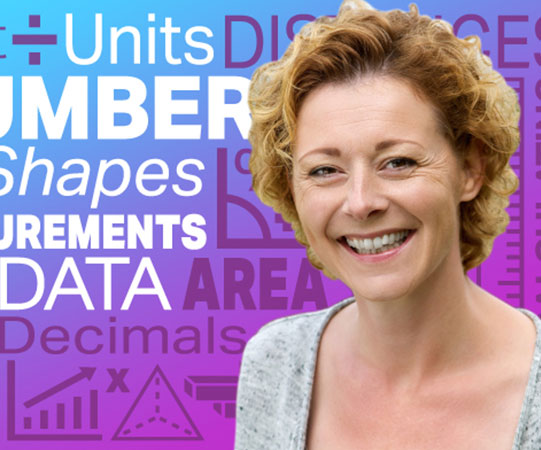Study with The Open University
Wales TUC in partnership with The Open University in Wales
Find out how studying with The OU can work for you and browse our recommended courses and qualifications.
Types of study available to you
OU courses and qualifications
Set your ambition free. Whatever you want to achieve, The Open University (OU) can help you make it happen. You don’t need any prior qualifications to study with The OU and you can boost your confidence with an Access module as you work towards your ultimate qualification goal.
Upskill with a microcredential
These professional development short courses are designed to help you quickly upskill and get ahead. Gain specialised skills in just 10–12 weeks with flexible online learning.
Free online
learning
The OU’s free online learning website, OpenLearn, offers over 10,000 hours of free learning. Discover articles, videos and games as well as expertly written online courses on a huge range of subjects. Learn at your own pace, track your progress, and earn digital badges and certificates.
Browse courses and qualifications
Many of The OU’s qualifications work as stepping stones, from one stage to the next. They’re also valuable in their own right. You could start with a certificate and stop there. Or continue your studies to gain a diploma and then a degree.
They perfectly align to union learning and the Wales Union Learning Fund (WULF) can support you to study microcredentials, short courses and Access modules.

Course terminology
Courses available to you
Please note WULF support is subject to eligibility and needs to be approved by union WULF project officers.

Access
Arts and languages Access module
With this Access module you'll explore the broad, but related, areas of arts, humanities and language. Each subject is introduced and explained at a comfortable pace to develop, or refresh, your knowledge of topics including history, art history, English literature and English language studies.
You could be eligible to study an Access module for free, find out more on the OU website.
Study (Part-time)
30 Weeks
Credits gained
30 Credits
Course cost
£328
Support from WULF
Available

Access
Psychology, social science and wellbeing Access module
This Access module gives you the chance to dip into some of our most popular subjects, such as psychology, childhood and youth, early years, health and social wellbeing, sport, education, and social sciences. You'll be introduced to discussions of theory and engage with real-world events to build up your knowledge and understanding of these wide-ranging topics.
You could be eligible to study an Access module for free, find out more on the OU website.
Study (Part-time)
30 Weeks
Credits gained
30 Credits
Course cost
£328
Support from WULF
Available

Access
Science, technology and maths Access module
With a mix of theoretical study and some practical experiments, this Access module can help you build up skills for future study in STEM subjects, no matter where you're starting from. Each subject is introduced and explained at a comfortable pace to develop, or refresh, your knowledge of topics including science, engineering and design, environment, mathematics, and computing and IT.
You could be eligible to study an Access module for free, find out more on the OU website.
Study (Part-time)
30 Weeks
Credits gained
30 Credits
Course cost
£328
Support from WULF
Available

Degree
Open degree
The Open degree allows you to bring together different areas of study in a completely flexible way to develop knowledge and skills. You have the freedom to combine modules from a wide range of subject areas and create a bespoke degree, diploma or certificate that fits your professional ambitions or personal interests.
Study (Part-time)
6 Years
Credits gained
360 Credits
Course cost
£7,872

Degree
Degree in Health and Social Care
This degree provides you with a sound and critical understanding of health and social care policy, theory, and practice, which is essential in today's fast-changing care sector. Professionals at all levels need to be proactive and flexible to succeed, and through your studies you’ll gain the skills needed for effective practice in a diverse, multidisciplinary environment.
Study (Part-time)
6 Years
Credits gained
360 Credits
Course cost
£7,872

Module
Making your learning count
Through a series of topics and assessment tasks, you will explore what you have learnt whilst developing the skills you need to be a successful student. The courses that you choose to study is up to you, making this learning experience an entirely personal one.
Study (Part-time)
6-9 Months
Credits gained
30 Credits
Course cost
£387
Support from WULF
Available

Module
Career development and employability
Whatever your chosen career, this key introductory OU level 1 module will enable you to use your workplace as a context for learning, and develop your ability to apply your learning to improve your practice at work. You will also develop your critical thinking skills and increase your understanding of how to research workplace issues.
Study (Part-time)
6-9 Months
Credits gained
30 Credits
Course cost
£656

Module
An introduction to business and management
This key introductory OU level 1 module provides an accessible and comprehensive introduction to business and management in a globalised world. Through readings and international case studies, you’ll explore a wide range of topics in contemporary business and management.
Study (Part-time)
6-9 Months
Credits gained
60 Credits
Course cost
£1,312

Certificate of Higher Education (CertHE)
Business Management
This flexible qualification starts with you: where you are now, and where you want to be in the future. Taking a practical approach that’s grounded in your own experience, you’ll be introduced to the essentials of business and management, the context in which businesses and other organisations operate, and its common aims and characteristics.
Study (Part-time)
2 Years
Credits gained
120 Credits
Course cost
£2,624

Module
Young children's play and creativity
This module focuses on understanding play and creativity in early childhood from different and diverse personal and professional perspectives. It considers how other children and adults impact on the play decisions and creative choices children make.
Study (Part-time)
6-9 Months
Credits gained
60 Credits
Course cost
£1,312

Module
Environment: journeys through a changing world
This module introduces you to subjects from the natural sciences, social sciences and technology to develop your understanding of environmental issues and sustainability concerns. Our world is changing fast – we are experiencing pressure from climate change, growing demands for finite resources, impacts of pollution and waste, biodiversity loss and the extinction of many plants and animals.
Study (Part-time)
6-9 Months
Credits gained
60 Credits
Course cost
£1,312

Degree
BSc (Hons) in Environmental Science
This degree explores the multiple disciplines needed to understand, manage and protect our planet. Assess environmental problems, propose solutions, and gain a comprehensive understanding of the natural environment. You’ll study topics, including conservation, ecology, ecosystems, environmental management and renewable energy.
Study (Part-time)
6 Years
Credits gained
360 Credits
Course cost
£7,872
Please note WULF support is subject to eligibility and needs to be approved by union WULF project officers.

Short course
Leadership in the digital world
In this course, we will explore selected aspects of leadership, including whether or not leadership has fundamentally changed in the digital era. We will suggest some specific ways of leading teams that help you focus ‘on doing the right things’. You will be encouraged to take an objective look at your own leadership effectiveness, and to build on all that you learn to define a development plan.
This is a non-credit bearing course.
Study (Part-time)
20 hours
Course cost
£250
Support from WULF
Available

Short course
Managing uncertainty through policy implementation
In this course you'll read case studies and watch videos that illustrate how societal challenges and policies will shape our future societies. You'll also have the opportunity to consider how policies and the broader macroenvironment affect your organisation, and you'll learn to use machine learning software to collect data and evidence.Study (Part-time)
20 hours
Course cost
£250
Support from WULF
Available

Microcredential
Climate Change: Transforming your Organisation for Sustainability
This microcredential will equip you with the knowledge, skills, and courage to transform your organisation’s response to the climate and ecological crisis, whatever your level, role or sector, and wherever you are in the world.
Study (Part-time)
10 weeks
Credits gained
10 Credits
Course cost
£500
Support from WULF
Available

Microcredential
Business Management: Project Management
This microcredential will introduce you to the core principles, tools, and techniques needed to lead, or successfully contribute to, projects that add value and deliver positive outcomes.
Study (Part-time)
10 weeks
Credits gained
10 Credits
Course cost
£500
Support from WULF
Available

Short course
Communication skills in the digital world
This course will take you through a range of the changes in the field of communication in our ever-evolving digital world. The course details a variety of communication tools and practical advice from both professionals and academics to help individuals in society and at work understand how to help shape communications strategically.
This is a non-credit bearing course.
Study (Part-time)
20 hours
Course cost
£250
Support from WULF
Available

Module
Introduction to social care
Gain a solid introduction to social care and the role it plays in supporting the independence and wellbeing of those who receive care. Discover the essential skills needed to work in the sector and examine whether a career in social care is right for you.
This is a non-credit bearing course. Certificate of completion (70% pass).
Study (Part-time)
48 hours
Course cost
£180
Support from WULF
Available

Microcredential
Business Management: People Management and Leadership
Designed by world-class academics from The Open University, with input from industry experts with diverse perspectives, this microcredential will introduce you to frameworks and ideas that will help you become an ethical and inclusive people manager and leader.
Study (Part-time)
10 weeks
Credits gained
10 credits
Course cost
£500
Support from WULF
Available

Short course
Introduction to digital marketing
Whether you’re new to digital marketing or want to build on existing experience, this course will introduce you to the core principles and latest trends that will help you plan first-class, user-centric campaigns and guide you through the dynamic digital marketing landscape.
This is a non-credit bearing course. Certificate of completion (70% pass).
Study (Part-time)
24 hours
Course cost
£200
Support from WULF
Available

Microcredential
Cisco: Python Programming (OpenEDG)
This microcredential will help kick start your career in programming, whether you’re just starting out or already working as a digital technology professional. You’ll gain industry-recognised skills and enhance your employment and career progression opportunities.
Study (Part-time)
10 weeks
Credits gained
10 credits
Course cost
£275
Support from WULF
Available

Short course
Foundations of UK immigration law (OISC Level 1)
The course explores the skills and knowledge expected of an Office of the Immigration Services Commissioner (OISC) Level 1 Immigration Adviser. It is suitable for those seeking to work as an OISC Level 1 Adviser and those seeking to expand their knowledge of the UK’s immigration system.
This is a non-credit bearing course.
Study (Part-time)
60 hours
Course cost
£249
Support from WULF
Available

Short course
Online counselling: getting started
Whether you’re a counsellor, psychotherapist, or trainee, this 25-hour short course will show you how to set up and provide safe and effective online counselling. It’ll teach you how to establish remote counselling via video and/or phone and how to navigate technology, data protection, and contracting challenges, as well as explore ethical practices, assess client suitability for online therapy, manage boundaries, work safely and foster inclusivity and diversity.
This is a non-credit bearing course.
Study (Part-time)
25 hours
Course cost
£200
Support from WULF
Available

OpenLearn free course
Being an OU student
The aim of this course is to help you get off to the best possible start on your journey with The Open University (OU). Students who invest a bit of time preparing for their studies are more likely to succeed, so taking time to do this course now will help in the long run.
Study (Part-time)
12 Hours
Gain a digital
Badge
Course cost
Free

OpenLearn free course
Everyday maths 1 (Wales)
Have you ever noticed how often you need maths skills in everyday life? This free course is an introduction to Level 1 Essential Skills in maths that’s designed to inspire you to improve your current maths skills and help you to remember any areas that you may have forgotten.
Study (Part-time)
48 Hours
Gain a digital
Badge
Course cost
Free

OpenLearn free course
Everyday English 1
Would you like to improve your current English skills or perhaps remember areas you may have forgotten? This free course serves as good preparation for studying the formal English Essential Skills Level 1, which is available in Wales.
Study (Part-time)
48 Hours
Gain a digital
Badge
Course cost
Free

OpenLearn free course
Croeso: Beginners' Welsh
This free course, Croeso: Beginners' Welsh, is taken from Croeso, a beginners' language module that concentrates on Welsh as a tool for communication, but it also provides some insights into Welsh societies and cultures through printed and audio materials.
Study (Part-time)
4 Hours
Course cost
Free

OpenLearn free course
Hybrid working: wellbeing and inclusion
This course will explore what workplace wellbeing means in a hybrid working world – whose responsibility it is, the challenges involved in creating and maintaining it, and the benefits it brings to your organisation.
Study (Part-time)
12 Hours
Course cost
Free

OpenLearn free course
So, you want to be a nurse? A brief introduction to nursing
This course provides an overview of what nursing entails. Focusing on nursing in the UK specifically, but also looking at its place globally, you will learn about the four fields of nursing in the UK, what nurse training involves, as well as what makes a great nurse.
Study (Part-time)
6 Hours
Course cost
Free

OpenLearn free course
Leadership and followership
Leaders are all around us – we encounter them at work and in our spare time, we read about them in the press – but have you ever wondered what makes them good or bad at their role? You might be considering a leadership role as your next career step, or maybe you’re in a leadership position already and finding it difficult to move your team forward.
Study (Part-time)
24 Hours
Gain a digital
Badge
Course cost
Free

OpenLearn free course
Diversity and inclusion in the workplace
This free course introduces you to the benefits and complexities of developing and supporting a diverse and inclusive workforce. It explores the positive impact of diversity on staff wellbeing and innovation within an organisation, enhancing a company’s competitive advantage and aligning with its social responsibilities
Study (Part-time)
24 Hours
Gain a digital
Badge
Course cost
Free

OpenLearn free course
Succeed in the workplace
Do you want to change jobs? Are you just starting in the job market? Are you returning to work after a break? If so, then this free course, Succeed in the workplace, is for you. It will help you explore career opportunities by starting from you, not the job - getting to know yourself and what you value are the foundations of your career planning
Study (Part-time)
24 Hours
Gain a digital
Badge
Course cost
Free

OpenLearn free course
Digital skills: succeeding in a digital world
This free course will develop your confidence and skills for life online, whether study, work or everyday life. It explores a range of digital skills and practices, including digital identity, digital well-being, staying safe and legal, finding and using information and online tools, and dealing with information overload.
Study (Part-time)
24 Hours
Gain a digital
Badge
Course cost
Free

OpenLearn free course
Introduction to cyber security: stay safe online
This free online course will help you to understand online security and start to protect your digital life, whether at home or work. You will learn how to recognise the threats that could harm you online and the steps you can take to reduce the chances that they will happen to you.
Study (Part-time)
24 Hours
Gain a digital
Badge
Course cost
Free
How does OU study work?
We offer a range of options that allow you to develop your knowledge and skills, whatever your study goal. Not ready to commit to a degree? You could start with a certificate or diploma of higher education. These are respected qualifications in their own right, but they also allow you to gradually build your studies, so if you opt for a degree later, you’re already part way there.
You can also develop your knowledge and skills with a microcredential, short course, or by studying a standalone module.
If you already have a degree, you may be interested in our postgraduate qualifications.


Funding your study
Fees and funding in Wales
An Open University qualification might be more affordable than you think. In this section, you can learn how much your qualification will cost and how to finance your studies. Our Finance Finder will highlight possible funding options that are tailored to you. Open University qualifications are made up of a series of modules. Every module has an individual fee – added together, they give you the total cost. You’ll fund your modules as you study them, which means you won’t have to pay for your whole qualification up front.
Whether you choose to study part-time or full-time will affect how much it costs each year. With us, you can study flexibly, meaning you can switch between part- and full-time intensity throughout your studies. There are lots of options to fund your study in Wales, from a tuition fee loan, employer sponsorship, scholarships or direct payment. We also offer bursaries for disabled veterans, care experienced young people, carers, those who identify as being from a black background or displaced from your homeland. You may already have a degree, and wish to reskill, so you could be eligible for a tuition fee loan and support for living costs.
Register your interest in WULF
Microcredentials, short courses and Access courses can be funded through the Wales Union Learning Fund (WULF). Eligibility applies and you will need to register your interest first.

